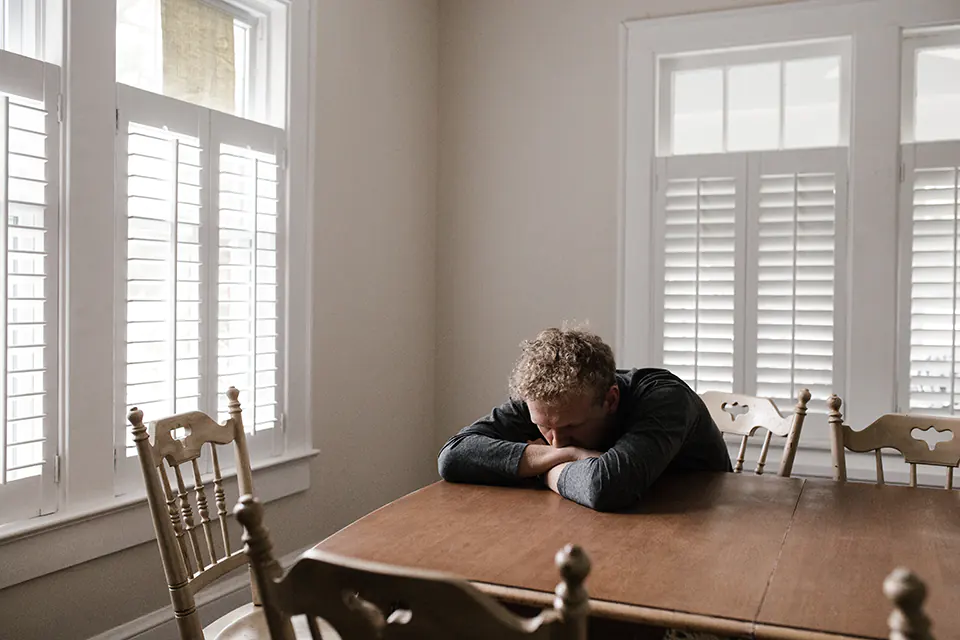Experiencing depression can sometimes feel as though you've got the weight of the world on your shoulders. For some, it can look like low mood and changes in eating, sleeping, or self-care routines. For others, it can make once-pleasurable activities seem pointless. It may even cause feelings of hopelessness, worthlessness, or despair.
So, what exactly is depression, and how is it treated? Below, we answer some of the most common questions about this mental health condition.
What Is Depression?
Depression is a mood disorder that can impact your emotions, thoughts, behaviors, and ability to function in daily life. It might be mild enough that you can typically manage your day-to-day life without significant issues, or it may be a debilitating condition that impacts every aspect of your life.
Regardless of the severity of your symptoms, depression is a common condition that can be treated in a variety of different ways.
What Are the Types of Depression?
There are several types of depression, which differ based on the symptoms a person may experience. A diagnosis is made by a doctor or therapist when someone has symptoms that meet the criteria for a disorder listed in theDiagnostic and Statistical Manual of Mental Disorders, version 5 (DSM-V).
Major Depressive Disorder (MDD)
The most common and well-known type of depression is called Major Depressive Disorder. According to the DSM-V, for someone to be diagnosed with MDD, they must experience at least one of the following two symptoms during the same two-week period:
- Low or depressed mood more days than not, for most of the day
- Loss of interest or pleasure in most, if not all, activities on more days than not, for most of the day
Additionally, three or more of the following symptoms must be present during the same two-week period:

- Changes in weight (up or down) or appetite
- Changes in sleep habits
- Moving around more than usual, or moving more slowly than normal
- Fatigue (not having enough energy) on more days than not
- Feeling worthless or a lot of guilt
- Trouble concentrating or thinking
- Thinking often about death or wanting to die, or having suicidal thoughts, plans, or urges
Symptoms must be present for two weeks or longer and may go into remission (go away) or stay consistent over time.
Persistent Depressive Disorder (PDD)
For this condition, a low or depressed mood happens on more days than not, for two years or more. A person can't be diagnosed with this if their symptoms go away for two months or longer within two years.
Additional symptoms of PDD include:
- Changes in eating or appetite
- Changes in sleep
- Fatigue
- Low self-esteem
- Difficulty with concentrating or making decisions
- Feeling hopeless
Someone can be diagnosed with MDD and PDD at the same time. A trained and experienced therapist can help determine if one or both of these conditions are present.
Other Types of Depression
Other types of depression listed in the DSM-V include:
- Premenstrual Dysphoric Disorder: a condition in which symptoms of depression are connected to the menstrual cycle.
- Substance/Medication-Induced Depression: a condition in which symptoms of depression occur while using substances or taking certain medications.
- Depressive Disorder due to Another Medical Condition: a condition in which symptoms of depression are caused by another medical condition.
- Disruptive Mood Dysregulation Disorder: a condition typically diagnosed in children between the ages of 6 and 18 marked by temper tantrums and a persistently irritable mood.
- Bipolar Disorder: a condition marked by manic or hypomanic episodes. Bipolar Disorder is technically in its own category, but a person diagnosed with this condition may also experience depressive episodes.
What Are Risk Factors for Depression?
Depression can affect anyone at any time. However, some common risk factors should be considered and, if possible, actively managed with the aid of a compassionate therapist. According to the National Institute of Mental Health (NIMH), the most common risk factors for depression include:
- A family history of depression
- Major life changes, losses, or stress
- Trauma
- Having a medical condition like diabetes, cancer, or heart disease
- Having another mental health condition, such as anxiety
Other risk factors may include stressors like poverty, discrimination, or illness.
What Are the Treatments for Depression?
There are many options available for you or your loved one to help treat depression. Some of the most common kinds of treatments include:
- Counseling services that treat the emotional and thought-based aspects of depression
- Treatments for trauma, such as Eye Movement Desensitization and Reprocessing (EMDR)
- Lifestyle modifications, mindfulness, biofeedback/neurofeedback can support other therapies such as stress reduction or changes to diet, exercise, or sleep habits
- Medications that treat the neurological or physical aspects of depression

There's no one-size-fits-all treatment for depression, which means it's vital you are provided with the compassionate, individualized treatment you deserve.
How Can BCB Therapy Help?
BCB's experienced therapists provide a wide array of services to those experiencing depression, anxiety, and other mental health conditions. We offer evidence-based therapy for depression in Central Oregon, and Boise, Idaho. We also offer Oregon teletherapy services, which allow us to provide mental health services to residents in Bend, Prineville, Redmond and the entire state of Oregon from the comfort and safety of their own homes.
Take the first step today toward healing and growth. Contact us to set up a consultation or to book your therapy appointment and know that we are here to help you every step of the way.